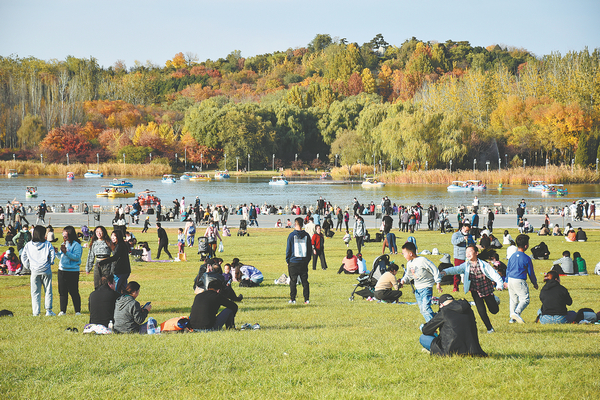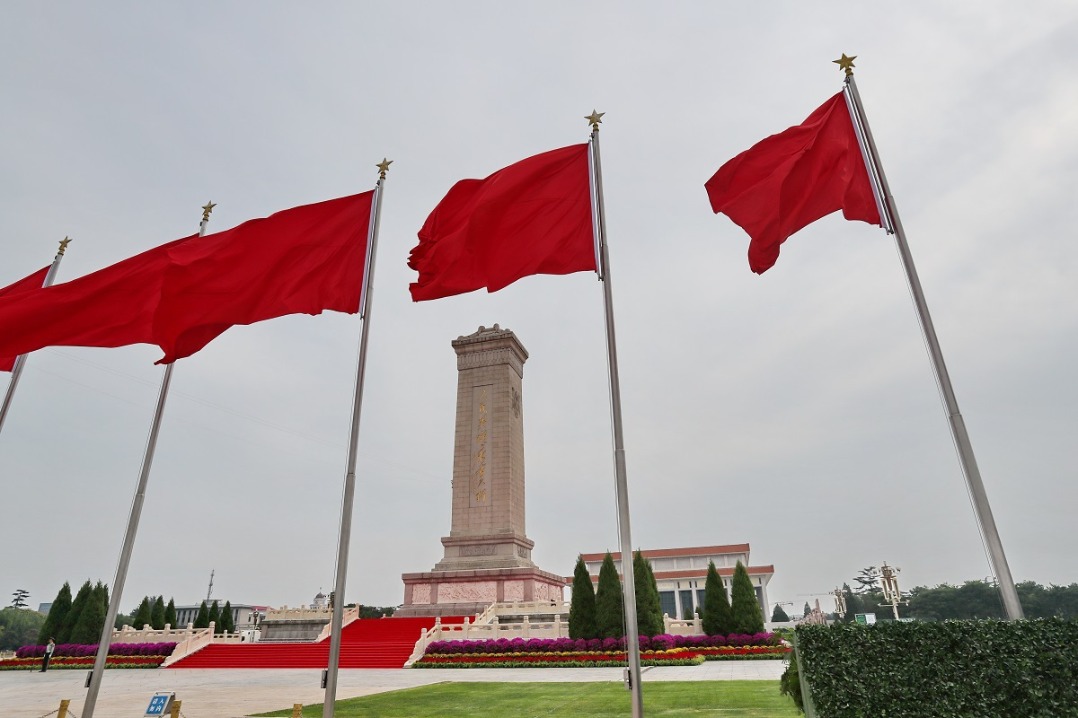Beijing enjoys benefits of Olympic legacy
By YANG FEIYUE | China Daily | Updated: 2021-12-28 08:24

The 2008 Beijing Olympics did not just bring a surging number of travelers to the capital city, but also boosted the integration of sport and tourism.
Beijing recorded a total of 6.52 million traveler visits during the Games, which ran between Aug 8 and 24, 2008, including 382,000 inbound visitors from outside the Chinese mainland, according to the data collected by the Beijing Municipal Bureau of Statistics from major hotels and scenic spots.
Tourism spots raked in 162.7 million yuan ($25.6 million) during the Games.
In 2009, the General Administration of Sport and the then National Tourism Administration (a predecessor of the Ministry of Culture and Tourism) issued a proposal to boost development in the integration of sport and tourism.
The Beijing Olympic Park and Jinhai Lake were recently named among 47 national sport tourism demonstration sites across the country by the General Administration of Sport and the Ministry of Culture and Tourism.
The Olympic Park has received more than 500 million traveler visits since the 2008, says Yang Ping, an official with the park's administration committee.
The park was named a site for red tourism and patriotism education by the Beijing Municipal Bureau of Culture and Tourism in 2018.
Travelers can appreciate up close the Olympic venues, including the National Stadium (Bird's Nest) and the National Swimming Center (Water Cube), while discovering the country's long history and traditional culture that is displayed in the sunken gardens, where dazzling sculptures and carefully designed flower arrangements can be enjoyed.
Themed blossom shows have been held through different periods of the year at the park, Yang says.
Usually a spring flower blossom festival is arranged from late March to early May, and a mass sunflower arrangement is in place during June and July.
In autumn, visitors can feast their eyes on blooming coreopsis plants and polychromatic blossoms.
Wang Jiaming is a regular at the park.
"I often drive 20 minutes from home in the evening to go jogging in the park," the Beijing resident says.
The park has professional running tracks that meander through its forest, wetland, hills and lake landscapes.
"The variations of scenery add enjoyment to the run," Wang adds.
Originally from Hunan province, Wang says he has taken many of his relatives to the park during their visits to the capital, either at their request or his own recommendation.
"I think it represents a unique part of Beijing, and is a nice place to entertain friends or simply chill out on my own," he says.
The authority has continued to invest effort into upgrading the park since the Olympics, adding international communications, culture exchange, sport and leisure to the park's functions.
"It has become a top choice of venue for international matches, performances and exchanges," Yang Ping says.
Since 2012, more than 8,000 major domestic and international events have been staged at the park, including a fireworks performance for the 2014 APEC Economic Leaders' Meetings, the 2015 IAAF World Championships and the China International Fair for Trade in Services.
Following the 2008 Games, the National Stadium has been a hot spot for various large-scale competitions, performances and tourism experiences, while the National Swimming Center has offered aquatic fun for millions of visitors, Yang says.
Influenced by the wave of sports and tourism integration, Jinhai Lake has tapped into its water sports potential over the years. The lake in northeastern Beijing's Pinggu district has become a popular destination for lake cruising, waterslides and jet ski experiences. Kite festivals and dragon boat races have also managed to attract crowds.
The authorities have also encouraged the development of sports events in the capital city, which has injected an athletic air to the city and enriched public life.
Several events in Beijing have been named sport tourism models by the sports authority, such as the Beijing Marathon, the Beijing International Mountain Walking Festival and the China Open.
Before the pandemic, the China Open at the China National Tennis Center in Chaoyang district was marked on Beijing resident Long Kang's calendar as a must-attend event every year since 2014.
"I normally went to see those matches with my friends, some of whom would come from outside the city," he says.
The international tennis event coincides with the country's National Day holiday, one of the two prime travel times.
"It was a nice way to spend the holiday. I got to see my favorite players, while being able to hang out with friends," Long says.
He also plays regularly at the China National Tennis Center.
"The price is reasonable compared with other tennis courts I visit in the city."
With the Winter Olympics coming, the Summer Olympics facilities will once again play a hosting role for some of the events.
Many technical problems have been overcome and renovations were conducted to "convert water into ice" at the Water Cube for the curling, according to Yang.
Meanwhile, the National Stadium will hold the ice hockey competitions, Yang says.
























